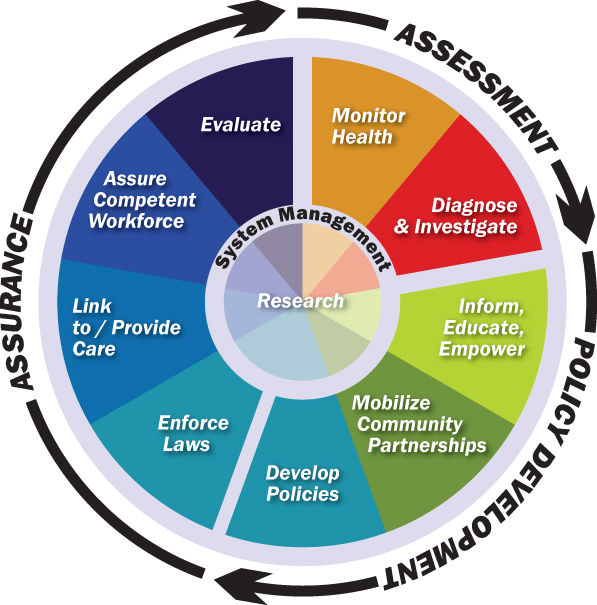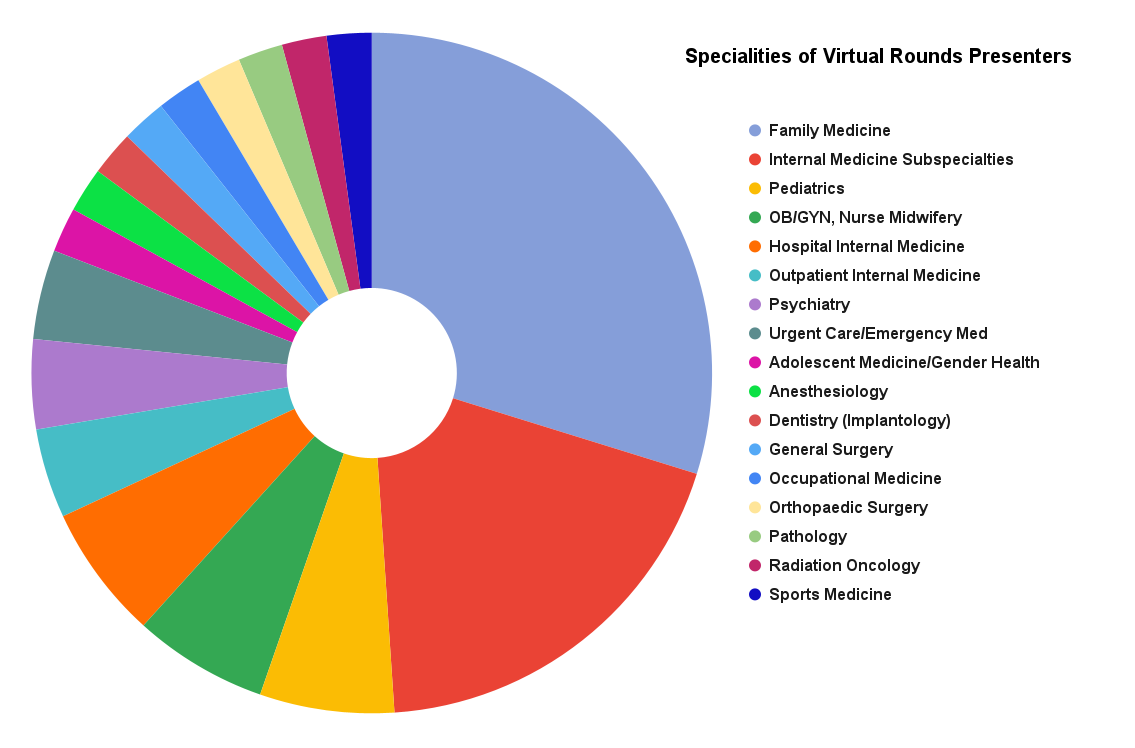VIRTUAL ROUNDS JOIN THE WAITLIST
PURPOSE
Virtual Rounds (VR) was created at the request of the BIPOC Health Careers Ecosystem to meet URM students’ need for clinical exposure and shadowing hours to apply for health professions schools. Students hear from a gamut of clinical specialties or public
health professionals, providing them with the breadth to consider potential careers.

PROGRAM COMPLETION REQUIREMENTS
VIRTUAL ROUNDS
Students are evaluated on preparation for sessions, participation, and post-meeting reflections.
ACTIVITIES
- Each session will include a presentation and personal journey segment from leading public health professionals in public health practice, research, or academia.
- Sessions often complement undergraduate studies in majors leading to public health, but provide students with any major to consider a variety of public health careers

10 Essential Public Health Services
Our program aims to highlight the 10 Essential Public Health Services by bringing in a variety of speakers who represent these areas of work.
More information about these 10 essential services can be found here
"I tend to have a lot of interests and due to having a lot of interests, I attend to also be indecisive. Public Health offers different avenues that I
can dip my toe into and see what's out there. I can also be in almost any field because, at the end of the day, all occupations are “hopefully” trying
to further our world and further develop what we create.”
- Malanda Clamoungou
"I learned more about public health and keeping it as an option for when I graduate high school. I love politics and the various fields that you could go
into with a public health degree. You can teach, be a nurse, physician, doctor, etc. I also love the advocacy it presents. I also enjoy how this field of
medicine interacts and gets to know more people and creates those strong connections. I like how some fields of public health focus on lower-income
families and making sure everyone [receives] the medical care they need, no matter their financial status."
-Gabrielle Aparis
“Many of the issues that face communities are not address because those from the community in healthcare/public health/academia do not direct
attention to the issues. This encouraged my to continue devoting my time and energy to issues that face underserved/ low SES/ BIPOC and LGBT
communities.”
-Elijah Olorode
"I learned more about public health and keeping it as an option for when I graduate high school. I love politics and the various fields that you could go
into with a public health degree. You can teach, be a nurse, physician, doctor, etc. I also love the advocacy it presents. I also enjoy how this field of
medicine interacts and gets to know more people and creates those strong connections. I like how some fields of public health focus on lower-income
families and making sure everyone [receives] the medical care they need, no matter their financial status."
-Gabrielle Aparis
“Some essential services of public health that were shown this week include mobilizing community partnerships, diagnosing and investing
health, evaluate, research, and monitoring health. I learned that there are also amazing opportunities to do community based work, and that it is
okay if you do not immediately start out within the field of public health.”
-Callista Ordonez
"Idanis presentation taught me to look into grants and scholarships that will allow me to conduct research into areas of studies I’m interested in.
With this support she innovated so many new ideas that would benefit agriculture and cattle farm workers...Through her work she created flyers,
informational graphics and social media posts to help educate on safety. It was great to see how much she communicated with her community
and [received] feedback on her projects so that she could find the way to best support their needs.
-Mixcila Sanchez
